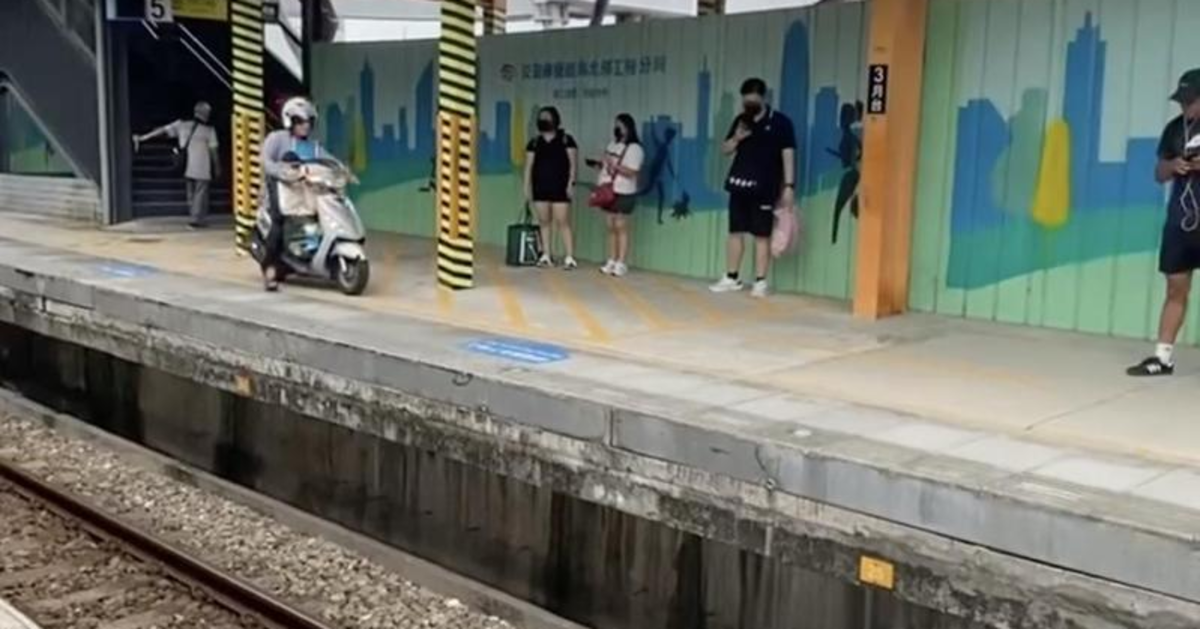TAOYUAN, Taiwan — A female motorcyclist sparked panic on Sunday, July 20, after she mistakenly drove onto the platform at Taiwan Railways’ Neili Station, startling passengers and prompting an investigation. The incident, which quickly went viral on social media, has raised serious questions about station security and safety measures.
A video posted by an eyewitness waiting for a train showed the motorcyclist riding on the third platform, prompting shocked reactions online. One commenter likened the bizarre event to a scene from the video game Grand Theft Auto, asking, “How did she even get on the platform?” Others pointed out that the station’s rear entrance is minimally secured, lacking turnstiles or barriers.
Taiwan Railways Administration (TRA) later clarified that the rider entered through a temporary rear gate installed as part of the ongoing railway underground construction project. The entrance had been widened to improve passenger access, but due to staffing limitations, it only features an electronic ticket pillar rather than a full gate system.
TRA said the woman appeared to realize her mistake quickly, turned around, and exited the station immediately. Surveillance footage has been reviewed by the Railway Police, who are now attempting to identify the rider using the motorcycle’s license plate. The rider will be summoned to explain the incident.
The Ministry of Transportation and Communications’ Railway Bureau noted that riding a vehicle into a restricted station area may constitute a violation of Article 57, Paragraph 2 of the Railway Act. The law prohibits unauthorized entry of people or vehicles into platforms, tunnels, tracks, or other non-public station areas. Violators face fines ranging from NT$10,000 to NT$50,000 under Article 70.
The Railway Bureau stated it is awaiting the formal case report from the Railway Police and will evaluate the evidence before making a final judgment on any penalties.
This incident follows a tragic accident in June, when a man fell onto the tracks at Nuannuan Station and was fatally struck by a Tzu-Chiang train — intensifying public concern over rail safety and access control.



